Cabaret Voltaire - Interview
by David McNamee
published: 22 / 11 / 2002
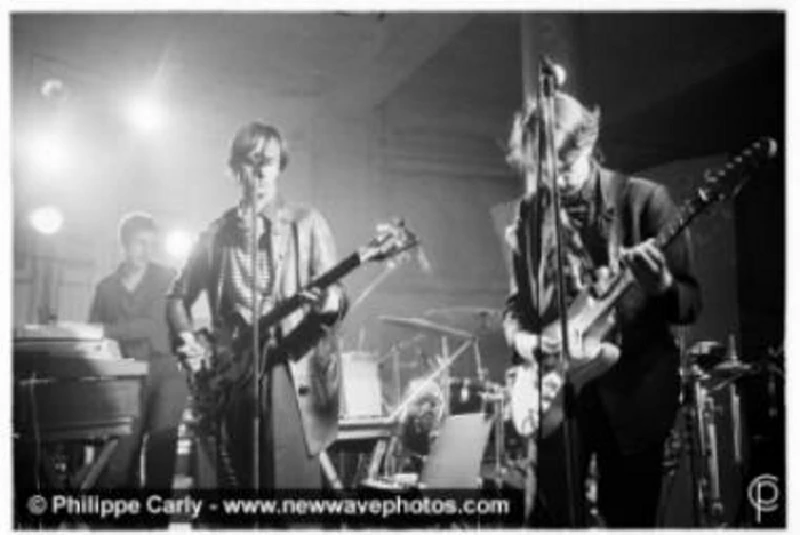
intro
One of the most important bands of the late 70's, Cabaret Voltaire were a massive influence on both Joy Division and Nine Inch Nails with their unique brand of electro punk. Guitarist Richard H. Kirk talks to David McNamee about their unique legacy
"Our cabaret is a gesture. Every word that is spoken and sung here says at least one thing: that this humiliating age has not succeeded in winning our respect. What could be respectable and impressive about it? Its cannons? Our big Drum drowns them. Its idealism? That has long been a laughing stock, in its popular and its academic edition. The grandiose slaughters and cannibalistic exploits? Our spontaneous foolishness and our enthusiasm for illusion will destroy them.” - Hugo Ball Germany in 1916 was a country torn apart by progress. Philosophers, writers, artists, filmmakers and musicians vied for ideological space alongside nationalists, politicians, warmongers. On the one hand lay coiled the emergent zeitgeist of the German Expressionist movement and its reappropriation of ancient German folklore into dramatic and powerful allegories for the nation’s warping political ideals; you had the Dadaists and Situationists challenging and rescripting ever possible preconception – but on the other hand loomed the spectre of Nazism, a progress dedicated to undermining any aesthetic or artistic progressions preoccupied with the incendiary capacity for unsanctioned revolt. It was to be a combination of these two impulses that led to the poet Hugo Ball fleeing to Switzerland and in 1916 founding the Cabaret Voltaire. A cabaret of deliberate, premeditated unsanity in a world where the real life lines of sanity and insanity had become tangled beyond all distinction. Sheffield in 1978 was a town torn apart by progress. Punks, new romantics, rastas, aesthetes, freaks vied for ideological space alongside nationalists, politicians, warmongers. On the one hand lay coiled the emergent zeitgeist of Post Punk and its reappropriation of insurrectionary, yet musically constricted, pub rock into dramatic and powerful musical collages reporting on the nation’s warping society; you had the futurists and proto-no-wavers challenging and rescripting every possible preconception – but on the other hand loomed the spectre of Def Leppard, a progress dedicated to undermining any aesthetic or artistic progressions preoccupied with the incendiary capacity for unsanctioned revolt. It was to be a combination of these two impulses that led to the mentalist Richard H. Kirk, along with Stephen Mallinder and Chris Watson, fleeing to the darker environs of their own heads and founding Cabaret Voltaire. A cabaret of deliberate, premeditated unsanity in a world where the real life lines of sanity and insanity had become tangled beyond all distinction. Cabaret Voltaire, taking their cue from Ball’s Dadaism, fed a deep, lingering dissatisfaction, suspicion, paranoia of mainstream British culture and politics through a meat grinder of cheap home taping technology. It sounded messy, bleak, disorienting, crude, visionary. Psychically it was informed by the dense, oppression-laden soundscapes of imported dub and the dead-eyed, adrenaline-veined cobra-strike of UK punk. It established an unrepeatable template of colossal influence – one attempted by everyone from Joy Division to Nine Inch Nails, from every lowly tribe of goth-industrial chancers to crawl out of the 80s to every Top of The Pops Electroclash extravaganza. 'The Original Sound of Sheffield' chronicles Cabaret Voltaire’s glory years, from 1978 to 1982. Listening to these early anarcho-experiments in the 21st Century we can report that Kirk’s vision sounds grimier, more clanking and cold and nihilistic and hostile and well, Sheffield, than ever before. Against the pristine white of Slipknot, Fischerspooner and Static-X, Cabaret Voltaire show up as a repulsive blood, pus n’ spunk grease stain. Listening to this collection you understand why: In 'Wait and Shuffle' you can hear the strands of DNA that spawned Drum n Bass slowly entwine their limbs and screw gracelessly. In 'Nag Nag Nag' you hear corporate industrial gunned down under a rain of shrapnel. It sounds glorious. “Cabaret Voltaire was like a mirror, just reflecting what we saw in the world around us, but a slightly distorted, cynical mirror,” reflects Richard H. Kirk on his group’s legacy. “I think things are worse than ever now. The forces of oppression and control are tightening their stranglehold on humanity." “I think you can safely say that the whole feeling despair, and the post war environment of desolation, in Sheffield, and many other northern cities was quite an influence on our work. The phrase 'No Future' taken as a slogan by the punks was very apt for those times. Sheffield especially suffered a lot from bombing during the 2nd World War, because of the industries. Same thing under Thatcher. This gave the place the feel of being a J.G. Ballard landscape." PB : Where do you turn to for musical inspiration these days? Much was made of Cabaret Voltaire taking their cue from Bowie's Berlin period, Kraftwerk and punk, and you were fostered in a musical environment that ranked a devastatingly diverse array of artists – from the dub-punk polemic of The Pop Group to the abrasive, metal-scarred Suicide –as your peers and contemporaries. Do you find anything in today's modern music scene that motivates you in the same way? Do you think there are any equivalents in 2002 to what Cabaret Voltaire were doing in 78-82? RK :"I think that the people who are dealing with those same themes are still some of the Jamaican artists, especially Sizzla, Capelton and a few others. Like back in the 70s, still warrior music. So I’m still looking there for inspiration, same as when it was Marley and the dub guys who were leading the way. Rasta culture has always had a good insight into the ways of the world, seeing things as they are or were. But recently I saw Alec Empire play live; he seems to be quite politicized, and makes an awesome noise to back it up. Definitely Throbbing Gristle, Suicide, The Pop Group, Wire and Joy Division were our contemporaries, but we took a hell of a lot of our inspiration from black music, dub, free jazz, afrobeat, but most of our inspiration wasn't from contemporary music but from the past. We always looked back to what had gone before, and took what we needed from that.” “When he enters, he keeps his cane of Spanish reed in his hand and occasionally swishes it around. That excites the audience. They think he is arrogant, and he certainly looks it. His nostrils quiver, his eyebrows are arched. His mouth with its ironic twitch is tired but composed. He reads, accompanied by the big drum, shouts, whistles and laughter.” - Hugo Ball on the Dadaist Huelsenbeck PB : Do you think the songs on this collection can stand seamlessly alongside new sounds being produced in the context of the modern electronic music scene, or would you prefer them to be looked at as a kind of precursor or progenitor to modern electronic music? Hearing these songs now, do you have a desire to update them into a modern sound along the lines of Akufen and Tiga & Zyntherius' recent updates of 'Nag Nag Nag'? If these songs had been written in 2002 what would you have done differently? Could you have written them now? RK : “I don't have a great desire to update any more of the stuff right now, but I was really pleased with both the Tiga & Zyntherius and Akufen mixes, I can imagine some fans of CV being upset by them. But Cabaret Voltaire always had the intention to upset, so there's nothing new there! I suppose it was a kind of experiment, to see what happens, what is possible. I am not sure if Cabaret Voltaire could exist now. The world has changed, music has changed. Everything is now about entertainment; Britain is becoming Disneyworld, or a gigantic theme park. We did our "music" to challenge preconceptions about what music or sound could be. It was never about money or career moves, so I doubt if we would survive these days.” The rudimentary (but ingenious) use of technology and production techniques used by Kirk, Mallinder and Watson in creating their early tape experiments seemed key to the whole Cabaret Voltaire aesthetic. It was a stripped down, fierce, intelligent sound perfectly in sync with the groups lyrical, political and artistic sentiments. It was like a homemade explosive - full of familiar and easily accessible (even innocuous) elements suddenly made into something dangerous, new and Other. Surely, critics who attack these recordings for sounding 'dated' are missing the point. RK : “I like the term homemade explosive, that's a good analogy, because it was a very D.I.Y. thing, but considering some of these recordings are 25 years old I think they have stood up well, given the very basic technology available back then. My relationship with technology is very one sided. I’m wary but try to use (or abuse) technology to suit my ends, not as an end in itself, which is very much the same approach as Cabaret Voltaire. With Cabaret Voltaire, we used technology to create new sounds, and to bolster the fact that we weren't great musicians. As a bluff. “Cabaret Voltaire came from a rock band perspective, if you consider say, the Velvet Underground or Can as a rock band; a very loose association with rock. But a lot of what we did was inspired by dance or repetition based music. I think Cabaret Voltaire was more into the idea of pop than rock, i.e. if you made music totally out on a limb and unlistenable then you risk having no audience, so no communication of ideas, so there was always the notion to keep some sort of pop element lurking in there.” “Each played his instrument, i.e. himself, passionately and with all his soul. Each of them, different as he was from all the others, was his own music, his own words, his own rhythm. Each sang his own song with all his might - and, miraculously, they found in the end that they belonged together and needed each other. I still cannot quite understand how one movement could unite within itself such heterogeneous elements. But in the Cabaret Voltaire these individuals shone like the colours of the rainbow, as if they had been produced by the same process of refraction.” - Hans Richter PB : What does this collection of songs mean to you? RK : “This collection of songs means that the last 25 years wasn't a complete waste of time, it's a legacy for others to enjoy, abuse or maybe inspire somebody else to start working with sound.” The compilation 'Cabaret Voltaire – 'The Original Sounds of Sheffield – 78/82 – Best of' out now on Mute.
Picture Gallery:-
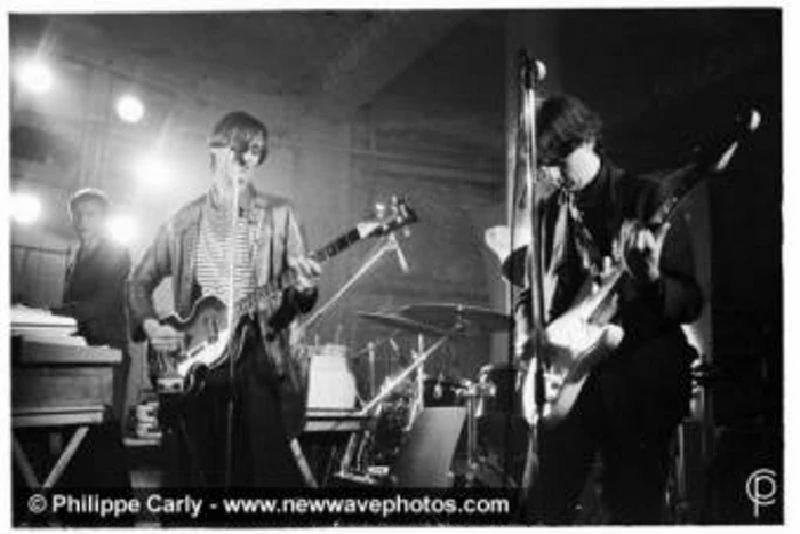
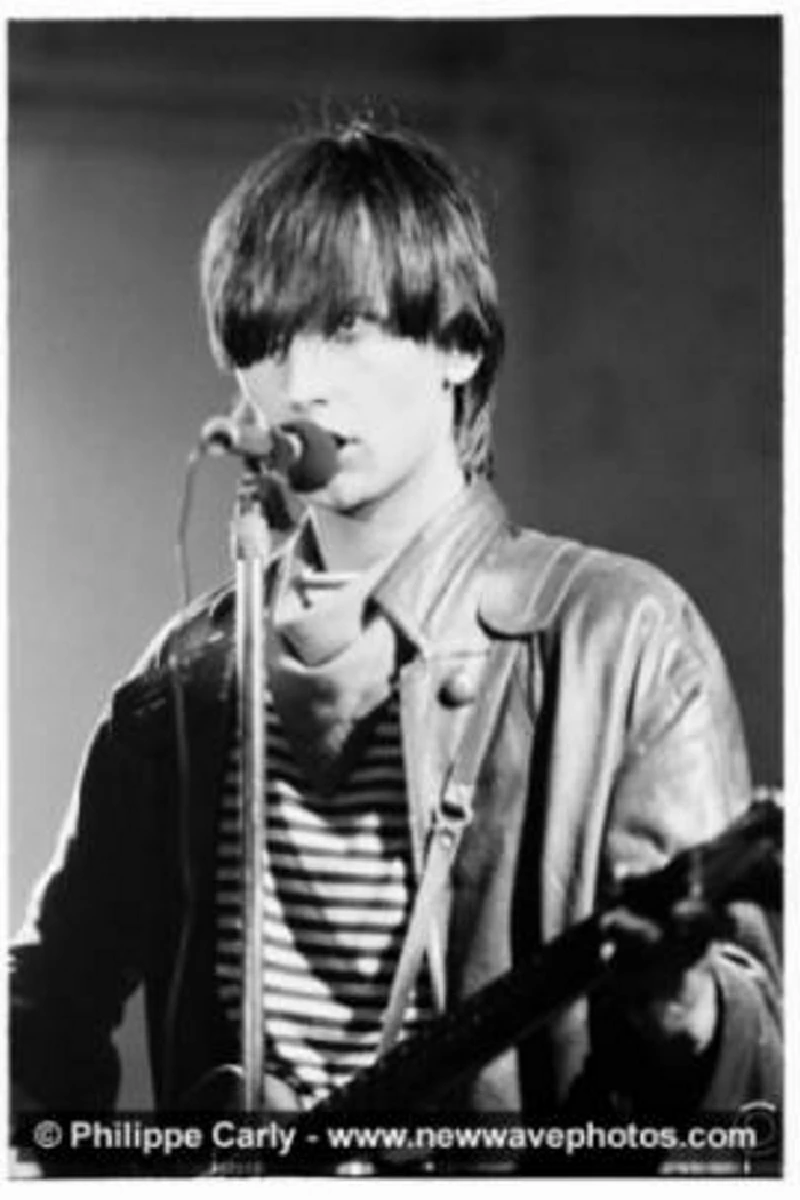
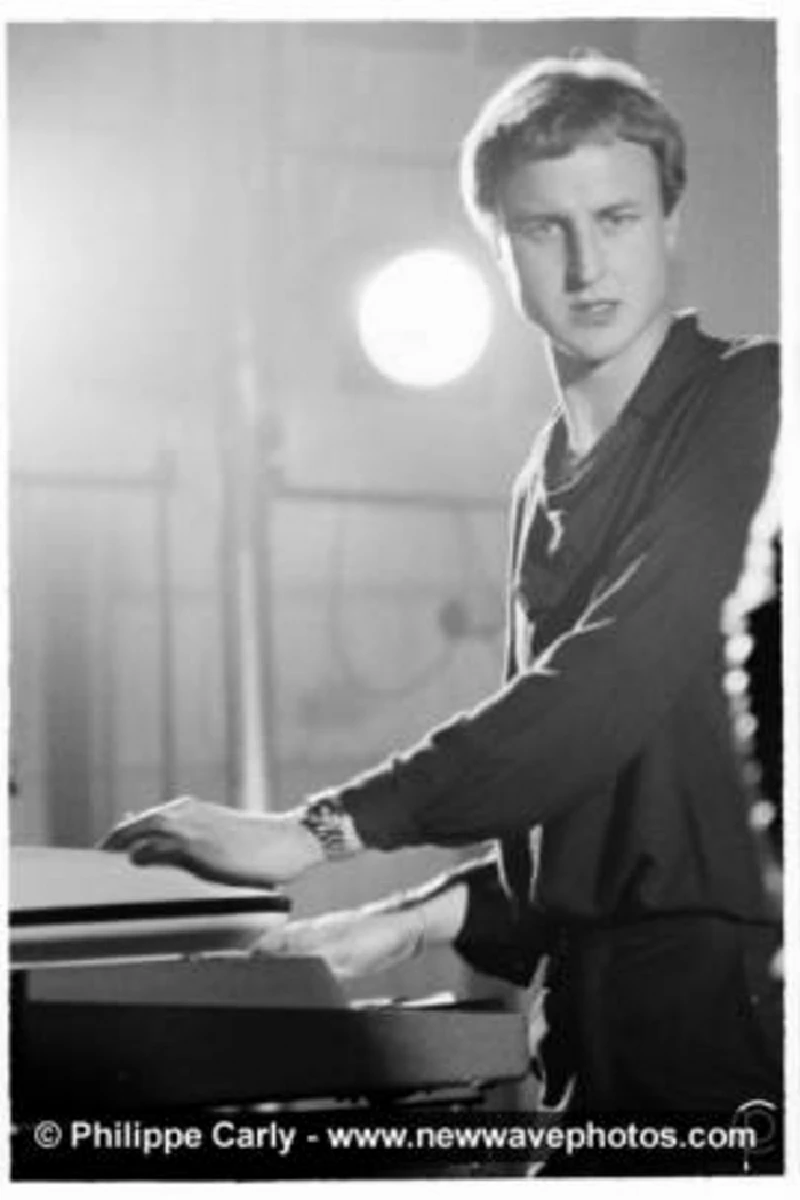
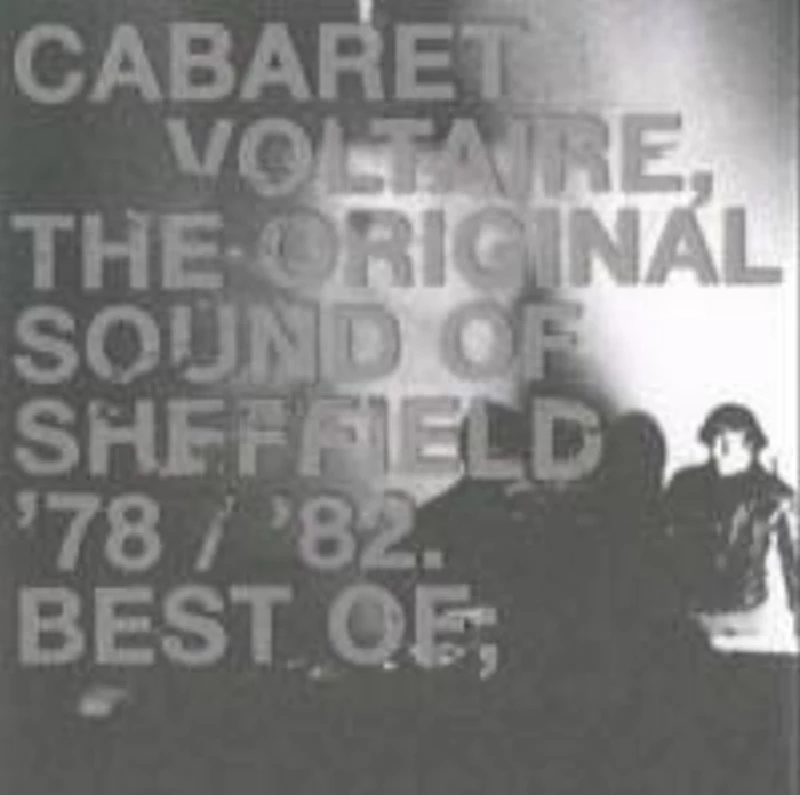
interviews |
|
Interview (2009) |
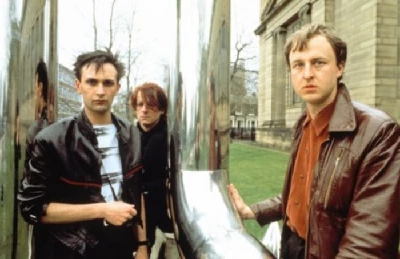
|
| Denzil Watson speaks to Richard H Kirk from influential Sheffield-based industrial/electronic group Cabaret Voltaire about his band's early years, their involvement with the young Factory Records and the recent return of his group |
features |
|
Doublevision Presents Cabaret Voltaire (2004) |
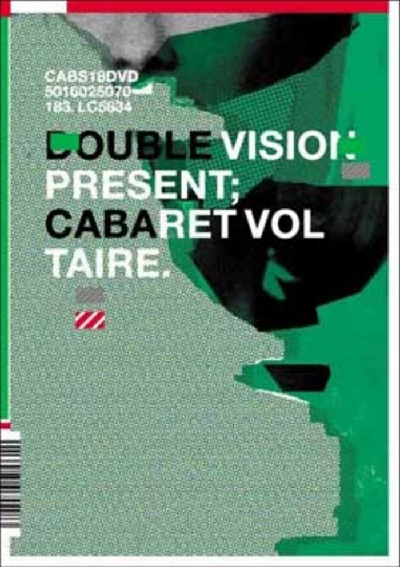
|
| First released in 1982, 'Doublevision Presents Cabaret Voltaire' was one of indiedom's first long form videos. Transferred to DVD, Anthony Strutt explains why the Sheffield art rockers' film proves to be "not for the light hearted and very hard work" |
most viewed articles
current edition
Carl Ewens - David Bowie 1964 to 1982 On Track: Every Album, Every SongArmory Show - Interview with Richard Jobson
John McKay - Interview
Colin Blunstone - Thalia Hall, Chicago, 16/7/2025
Bathers - Photoscapes 1
Billie Eilish - O2 Arena, London, 10/7/2025
Loft - Interview
Visor Fest - Valencia, Spain, 26/9/2025...27/9/2025
Sir Tim Rice - Interview
Robert Forster - Interview
previous editions
Manic Street Preachers - (Gig of a Lifetime) Millennium Stadium, Cardiff, December 1999Heavenly - P.U.N.K. Girl EP
Beautiful South - Ten Songs That Made Me Love...
Peter Perrett - In Dreams Begin Responsibilities Interview Part One
Boomtown Rats - Ten Songs That Made Me Love....
Oasis - Oasis, Earl's Court, London, 1995
Coldplay - Wembley Arena. London, 16/8/2022
Trudie Myerscough-Harris - Interview
Prolapse - Interview
Pixies - Ten Songs That Made Me Love...
most viewed reviews
current edition
Davey Woodward - Mumbo in the JumboSick Man of Europe - The Sick Man of Europe
Lucy Spraggan - Other Sides of the Moon
Amy Macdonald - Is This What You've Been Waiting For?
Phew, Erika Kobayashi,, Dieter Moebius - Radium Girls
Suzanne Vega - Flying With Angels
Bush - I Beat Loneliness
Alice Cooper - The Revenge of Alice Cooper
Blueboy - 2
Cynthia Erivo - I Forgive You
Pennyblackmusic Regular Contributors
Adrian Janes
Amanda J. Window
Andrew Twambley
Anthony Dhanendran
Benjamin Howarth
Cila Warncke
Daniel Cressey
Darren Aston
Dastardly
Dave Goodwin
Denzil Watson
Dominic B. Simpson
Eoghan Lyng
Fiona Hutchings
Harry Sherriff
Helen Tipping
Jamie Rowland
John Clarkson
Julie Cruickshank
Kimberly Bright
Lisa Torem
Maarten Schiethart